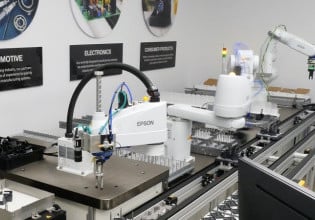M
hi all,
Just want some advice really.....
I have in the past controlled quite a few control loops over networks, MB+, eth i/p, MBTCP but have a slightly more critical application where this control is needed. I have a beckhoff PLC peer to peer with a modicon quantum (984 ladder) and have a process variable being read in the beckhoff and being transferred to the quantum over MBTCP. The quantum has the PID loop.
The process is a sugar slurry feed into a separator through the control valve (the MV) and torque (being read from the separator shaft) the PV.
There is no issue that this will work OK but really wanting some feedback on control loops over comms. All comments welcome.
Just want some advice really.....
I have in the past controlled quite a few control loops over networks, MB+, eth i/p, MBTCP but have a slightly more critical application where this control is needed. I have a beckhoff PLC peer to peer with a modicon quantum (984 ladder) and have a process variable being read in the beckhoff and being transferred to the quantum over MBTCP. The quantum has the PID loop.
The process is a sugar slurry feed into a separator through the control valve (the MV) and torque (being read from the separator shaft) the PV.
There is no issue that this will work OK but really wanting some feedback on control loops over comms. All comments welcome.






